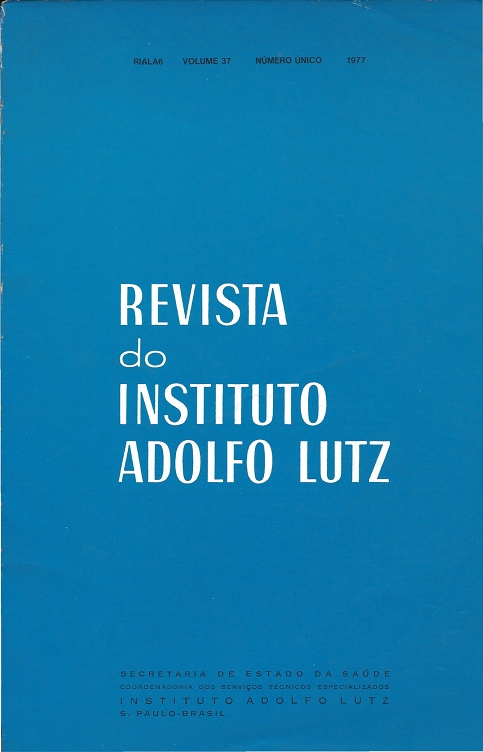Abstract
Investigation of the prevalence of intestinal parasites among the migrants entering Brazil through Santos or São Paulo was motivated by concern
about the risk of importing alien pa.raaites into Brazil. Present legislation requires
a parasitological examination of the feces to be done in Instituto Adolfo Lutz of São Paulo, when the immigrant enters through Santos or São Paulo city. The data presents, collected over a period of 3 months in 1975, are from the parasitological examination of feces of 3.370 immigrants native to various countries and continents. Special attention was given to the finding of eggs of Schistoeoma haematobium, Schietosoma man8oni, Triehostrongylus sp. and Clonorehis sinensis. Epidemiological and pathological considerations are in interwoven reasons for the concern about diseases caused by the parasites cited and the possible inplications for public health in Brazil.
References
2. BAYMA. T. & PESTANA, B.R. - Paraeiiismo intestinal nos immigrantes japonezes. São Paulo, Instituto Bacteriológico,
1918. 7 p.
3. CAMPOS, R. - Eventuais implicações no Brasil de doenças parasitárias de imigrantes.
se». paul. Med., 88: 50-1, 1976. [Resumo]
4. FUJINAMI, A. - Uma viagem de investigação médica ao Brasil. Sei. méd. (Rio de Janeiro), 6: 483-90, 1928.
5. PIZA, J.T.; MORAES, L.V.C.; VAZ, J.F.; RODRIGUES, D.C.; ALMEIDA, F.M.R. & BUZATTO, E. - Estudo de dois casos de esquistossomose hematóbia em imigrantes africanos (Nota prévia). Rev. paul. Med., 88: 49, 197. [Resumo]

This work is licensed under a Creative Commons Attribution 4.0 International License.
Copyright (c) 1977 Instituto Adolfo Lutz Journal
